Share
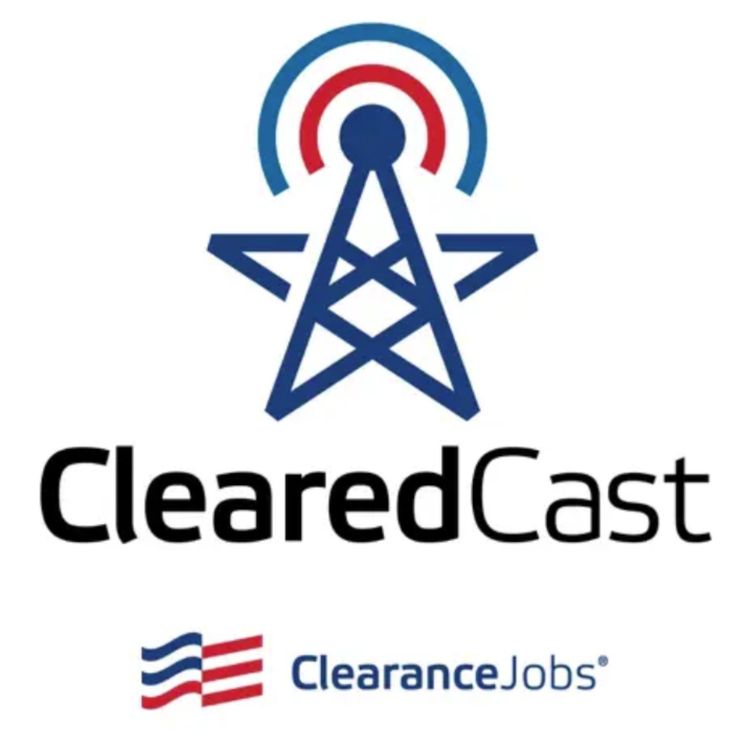
Security Clearance Careers Podcast
Interesting Security Clearance Facts
•
classified information or restricted areas.
We test our PR and Partnerships Manager, Phoebe Wells, on everything security clearances.
Here are some interesting facts about security clearances:
- Levels of Clearance: There are several levels of security clearance, with the most common being Confidential, Secret, and Top Secret. Each level requires a different depth of background investigation.
- Background Checks: To obtain a security clearance, individuals must undergo a rigorous background check that includes personal interviews, credit checks, and scrutiny of personal relationships and foreign contacts.
- Periodic Reinvestigation: Security clearances are not permanent. They require periodic reinvestigation to ensure that the individual still meets the necessary criteria. For example, Top Secret clearances typically need to be reinvestigated every five years.
- Need-to-Know Basis: Even with a security clearance, individuals are only allowed access to the specific information necessary for their job duties. This is known as the "need-to-know" principle.
- Adjudicative Guidelines: The process of granting a security clearance is guided by specific criteria, including allegiance to the country, foreign influence, financial considerations, alcohol and drug use, criminal conduct, and emotional, mental, and personality conditions.
- Polygraph Examinations: For certain high-level clearances, such as those required for intelligence agencies, candidates may be subjected to polygraph (lie detector) tests to verify the truthfulness of their statements.
- Impact of Social Media: In recent years, social media activity has become an important factor in security clearance investigations. Investigators may review posts, comments, and affiliations as part of the background check.
- Revocation of Clearance: Security clearances can be revoked if an individual no longer meets the criteria. This can happen due to changes in behavior, criminal activity, or other factors that raise concerns about trustworthiness and reliability.
- Job Requirement: Many government jobs and positions with defense contractors require security clearances. These clearances are essential for roles that involve handling sensitive information related to national security.
- Global Perspective: While security clearance procedures are most commonly associated with the United States, other countries have their own systems for granting access to classified information. Each country has its own standards and procedures for vetting individuals.
Understanding the importance and complexity of security clearances helps highlight the critical role they play in protecting national security and sensitive information.
More episodes
View all episodes
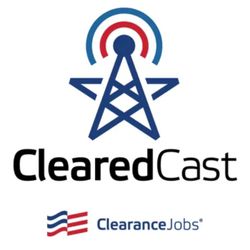
Navigating the Federal Workforce Reset
22:20|What happens when the federal career you expected no longer exists?Lindy Kyzer speaks with Love Rutledge, host of the FedUpward podcast and longtime advocate for federal employees, about navigating unexpected career transitions in government.Love shares her own experience retiring earlier than planned through deferred resignation — and the identity shift that comes with stepping away from lifelong civil service. Together, they unpack the emotional and financial realities of leaving federal employment, how to translate federal resumes for private-sector roles, and why outcomes matter more than duties in today’s job market.They also highlight grassroots resources supporting transitioning federal employees, including community-led initiatives, networking strategies, and professional organizations that are helping fill gaps left by traditional support systems.Finally, they discuss an important countertrend: federal hiring isn’t gone. Agencies are rehiring. Budget cycles still drive opportunity. And for some professionals, the next move may be a return to government service — this time with clearer strategy and broader perspective.If you’re transitioning, underemployed, job searching, or simply reassessing your path in public service, this episode offers clarity, realism, and practical next steps.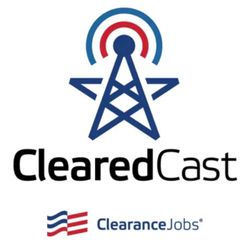
Recruiting Subject Lines That Can Increase Your Email Open Rates
22:54|Your first impression often isn’t a handshake. It’s a subject line.Recruiters spend hours crafting the perfect message to candidates, only to see it go unopened. The truth? Even the most compelling opportunity won’t matter if your email never gets clicked. A strong subject line can be the difference between a missed connection and your next great hire.Jay Schwedelson, founder and CEO of GURU Media Hub, has built and led businesses that have generated over $400 million in revenue, all by doing what most marketers are too afraid to try: breaking the so-called “best practices.” He joins the podcast to talk about what subject lines actually increase open rates and what best practices you should ignore.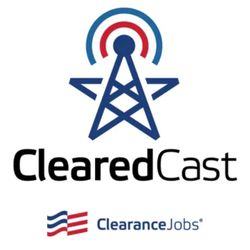
Want Better Cleared Candidates? Start Here (Before Your Competitors Do)
27:53|If you’re hiring cleared talent, you already know the market is moving fast—AI, clearance timelines, technical recruiting pressure…Today we’re breaking down why ClearanceJobs Connect West is the event recruiters should prioritize this year. Tune in to learn about Connect West in one word and what kind of recruiter gets the most value from attending.
Human Judgment in a Machine-Speed World
26:44|Artificial intelligence is rapidly reshaping national security missions—but real AI readiness goes far beyond adopting new tools.On this episode of Security Clearance Insecurity, host Lindy Kyzer is joined by Jennifer Ewbank, former Deputy Director of the CIA for Digital Innovation, for a deep dive into what it truly means for the federal government to be AI-ready.Together, they explore why AI readiness must start with mission readiness, not technology procurement; why digital literacy is no longer optional for the federal workforce; and how human judgment, accountability, and ethical decision-making become even more critical in an AI-enabled environment. The conversation also examines the growing overlap between AI and cybersecurity, the cultural and bureaucratic barriers slowing adoption, and the risks government faces if it fails to adapt.This episode offers practical insight for clearance holders, hiring leaders, policymakers, and technologists navigating the realities of AI, governance, and workforce transformation in national security.
Cyber and AI Career Pathways
31:04|Breaking into cybersecurity or AI can feel overwhelming—especially with so much conflicting advice online. In our latest podcast episode, we sat down with Dr. Gerald Auger, a cybersecurity leader, educator, and founder of the Simply Cyber community, to cut through the noise and focus on what actually works.With over 20 years of experience across cybersecurity operations, leadership, and higher education, Dr. Auger shared practical guidance for anyone looking to launch or level up a technical career. We talked about the foundational skills employers care about most, how AI is reshaping cybersecurity roles, and why hands-on experience and community involvement often matter more than chasing every new certification.Dr. Auger also offered honest insights into common mistakes job seekers make—from relying too heavily on job boards to underestimating the power of personal branding and networking. For veterans and career switchers, he emphasized translating experience into business value and treating the job search like a mission with clear objectives and accountability.Whether you’re just starting out, transitioning from the military, or navigating the next step in your tech career, this episode delivers clear, actionable advice to help you move forward with confidence.🎧 Listen to the full episode to learn how to build a cybersecurity or AI-adjacent career that lasts.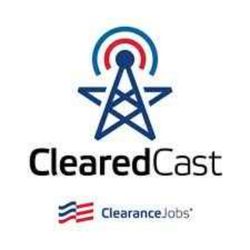
Defense Contractors Offering Cleared Remote Work
25:40|Remote work is a major factor in how professionals choose roles, companies, and even long-term career paths. But for cleared professionals, the remote work conversation comes with a unique set of questions: Is remote work even possible with a clearance? Which roles can actually be done off-site? How do you find real remote jobs, and avoid the ones that aren’t what they seem?A recent FlexJobs report, Top 100 Companies to Watch for Remote Jobs in 2026, includes several major defense contractors, and that’s a signal worth paying attention to. While many cleared roles still require on-site work, the presence of defense employers on a remote-focused list shows that flexibility is becoming part of the broader defense hiring conversation.In this episode, we break down what remote work really looks like in the cleared space, what job seekers should know before applying, and how to stay competitive as hiring trends evolve.
A New Era of Security Clearance Insecurity: New Legal Voices, Real-World Guidance for 2026
28:37|The Security Clearance Insecurity podcast welcomes new legal contributors Elisabeth Baker-Pham of Kalijarvi, Chuzi, Newman & Fitch, P.C. and John Berry of Berry & Berry, PLLC to the mic. In this episode, the panel breaks down how security clearance decisions intersect with employment law, why agencies handle cases differently, and what cleared professionals should know before filling out an SF-86, responding to investigators, or facing a statement of reasons. A must-listen for anyone navigating the cleared workforce this year.
Stories from Inside the CIA
24:59|In the male-dominated world of international espionage, the stories of the women who quietly shaped history have too often been overlooked. Agents of Change: The Women Who Transformed the CIA by Christina Hillsberg brings those stories into the spotlight, revealing how courage, resilience, and grit helped women redefine what it means to be a spy.A New Lens on Intelligence HistoryFor decades, popular culture has portrayed female spies as glamorous sidekicks or exotic figures. But the real history of women in the Central Intelligence Agency (CIA) tells a very different story: one of trailblazers who fought systemic bias, navigated dangerous operations, and forged paths in one of the most secretive institutions in the world.Agents of Change charts that history from the 1960s “secretarial era” through decades of steady progress toward leadership and influence. Along the way, Hillsberg weaves together firsthand accounts from female CIA officers who broke barriers, tackled espionage missions, and reshaped the agency from within.
A Beginner's Guide to Polygraph Examinations
21:53|Polygraphs, often called “lie detector tests”, have long been surrounded by mystery, pop culture myths, and a fair amount of anxiety. While they’re frequently portrayed as foolproof truth machines, polygraphs are better understood as tools that measure physiological responses rather than lies themselves.